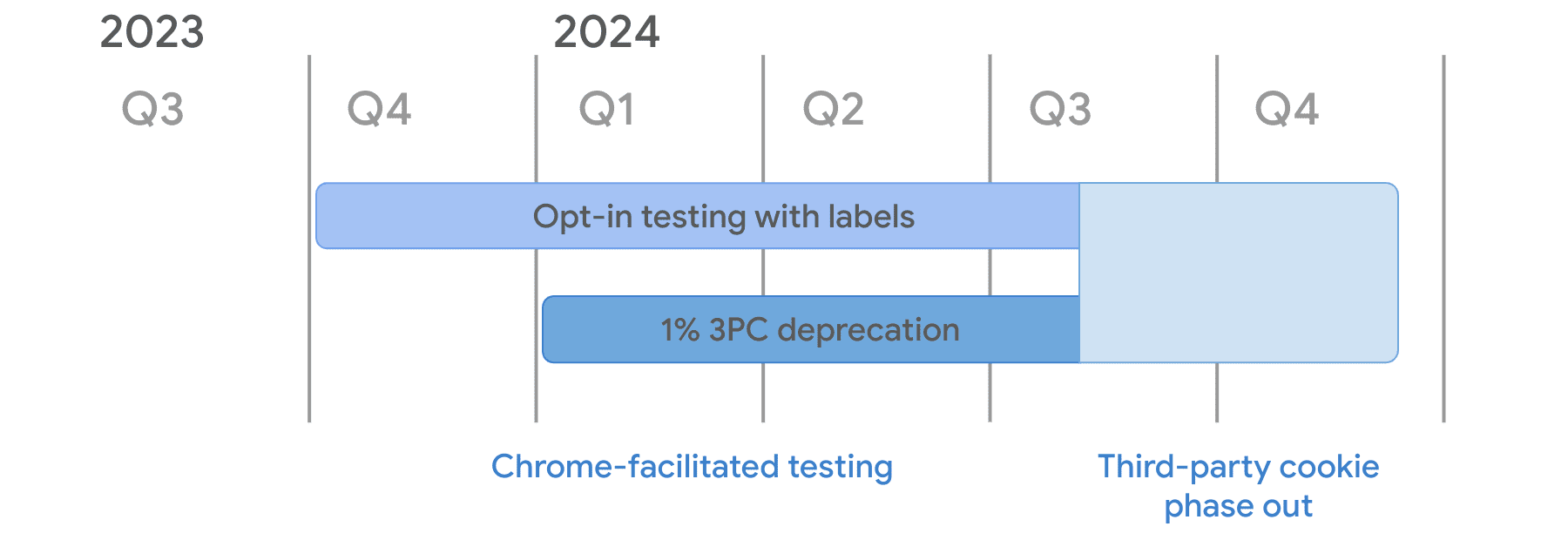
With this privacy-focused future, is the foundation of targeted advertising for digital marketers crumbling? Let’s dive into why it’s not all doom and gloom.
Google Chrome Third-Party Cookie Announcement
It’s finally happening. Google just released: “As of 4th January 2024, Chrome has started restricting third-party cookies by default for 1% of Chrome browsers.” The plan is to then ramp “up to 100% of users from Q3 2024.” We’ve been talking about this for a while, and Google has kept pushing it off, but this deadline feels real — especially since the adoption of GA4 was bulldozed on us in July last year.

Why Marketers Care About Third-Party Cookies
Third-party cookies are the backbone of highly targeted advertising. They allow marketers to track user behaviors between websites, and then serve them ads based on their interests and activities. You know, like how a Facebook (Meta) Pixel tracks user activity on your website and then you can retarget them. As Chrome is the most popular browser, this is very be problematic.
Is All Meta Pixel Tracking Going to be Gone?
Of course not! It’s not like Meta would suddenly allow $33.64 Billion in advertising revenue to disappear. Marketers have known about this for years. Most notably, by default, the Meta Pixel is actually both a first and third-party cookie. While it’s not exactly clear what data is going to be lost when the third-party cookies are gone, Meta has come up with sly workarounds. For instance, CAPI, which relies on server-side tracking, so a web browser like Chrome can’t do squat about blocking it.
What About Other Platforms?
The programmatic platform we use for Display, Native, Audio, Out-of-Home, and ConnectedTV ads tracks users in other ways that can’t be blocked, such as device IDs. TikTok, like Meta, has an option for first party cookies. And, naturally, Google certainly tracks users, too, for its $220+ Billion in ad revenue. At TwoSix Digital, we doubt Google will block itself.
What Should Marketers Do?
Well, like we’ve said for years, really pushing for first-party data will be crucial. Lead generation campaigns, such as for e-newsletters sign-ups, are something to look into no matter what. The adaption period is still likely to be a rocky one and user lists are going to save you a lot of heartache. As it’s still not completely clear what will happen with Meta’s pixel, consider server-side tracking with Meta CAPI. Start the conversation and see what you can do to navigate this period!


